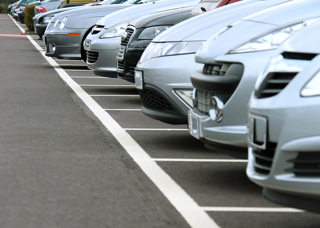HMRC has issued guidance to fleets on how to treat benefit-in-kind (BIK) tax and expenses during the Covid-19 pandemic.
The new HMRC advice aims to deal with those employees, who may have been furloughed or are working from home, because of coronavirus, and provided with a company car which they still have.
The new guidance says that an employer should treat the car as being made ‘available for private use’ during this period even if your employee is:
- Instructed to not use the car
- Asked to take and keep a photographic image of the mileage both before and after a period of furlough
- Unable to physically to return the car or the car cannot be collected from the employee
Where restrictions on movement applies because of coronavirus and prevents the car from being handed back or collected, HMRC will accept that a company car is unavailable in the following circumstances:
- Where the contract has terminated - from the date that the car keys (including tabs or fobs) are returned to the employer or to a third party as instructed by the employer
- Where the contract has not been terminated – after 30 consecutive days from the date that the car keys (including tabs or fobs) are returned to the employer or to a third party as instructed by the employer
The return of keys means that a car cannot be driven in any circumstances even if it is still in the possession of the employee.
HMRC also recognises that following relaxation of coronavirus restrictions, it may take some time to collect cars where contracts have been terminated.
It says that as long as your employee continues to have no access to the keys until the car is collected from them, HMRC will still regard the car as being unavailable.
Volunteer fuel and mileage costs
To support volunteer work by employees, employers may agree to refund fuel costs or fund the costs of volunteer mileage.
Employees using company cars
It says that you may agree to refund the fuel costs (using the Advisory Fuel Rates) of your employees carrying out volunteer work related to coronavirus, for example, delivering medical supplies including PPE.
These refunds, it says, are a benefit and employers may settle any tax and National Insurance contributions on their employee’s behalf by reporting through a PAYE Settlement Agreement.
It adds that employers may also agree to fund the cost of fuel for volunteer mileage related to coronavirus. Volunteer mileage should not be taken into account for the purposes of the car fuel benefit charge for company cars.
Any tax and National Insurance contributions due should be reported through a PAYE Settlement Agreement as a coronavirus related benefit based on the appropriate advisory fuel rate for the volunteer mileage.
Employees using private cars
If an employee uses their own car to volunteer employers can refund them up to the level of the approved mileage allowance rate. This is taxable and should be reported through a PAYE Settlement Agreement as a coronavirus related benefit.
If employers pay employees less than the approved mileage allowance rate they cannot claim mileage allowance relief.
Paying or refunding transport costs
If an employer pays or refunds employees the cost of transport from work to home, this is considered to be a benefit. This is because journeys between an employee’s workplace and home are private journeys.
In some circumstances there is an exemption from paying tax on this benefit. For this to happen, all of the following four conditions must be met:
- The employee has to work later than usual, and until at least 9pm
- This happens irregularly
- By the time the employee finishes work, either: public transport has stopped or it would not be reasonable to expect them to to use public transport
- The transport is by taxi or similar road transport
Employees may regularly travel to work in a car with one or more other employees using a car-sharing arrangement. If this arrangement stops because of unforeseen and exceptional circumstances, which are coronavirus related, and an employer provides transport or reimbursement of the expense of transport from an employee’s home to workplace, this may also be exempt.
The total number of exempt journeys cannot exceed 60 journeys in a tax year. This is a single limit that applies to the late-night journeys and the failure of any car-sharing arrangement, together.
If these requirements are not met, free or subsidised transport is taxable and should be reported through a PAYE Settlement Agreement as a coronavirus related benefit.
HMRC issued guidance on salary sacrifice arrangements, last month.
Click here to see the official company car guidance on the Government website.






















Login to comment
Comments
No comments have been made yet.